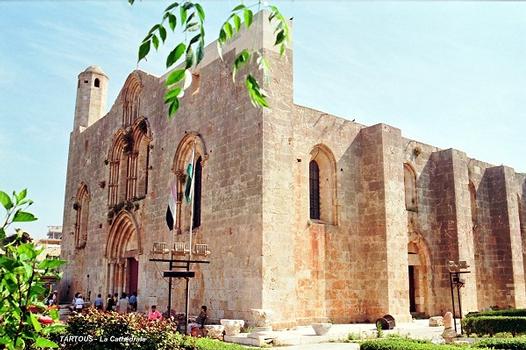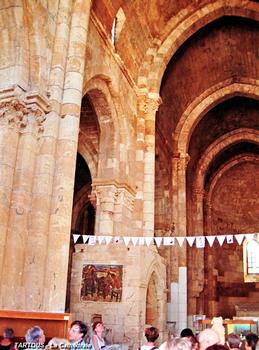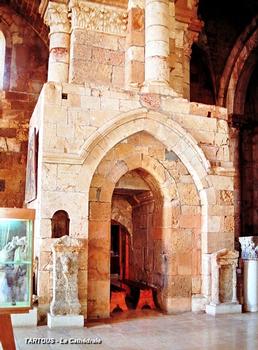General Information
| Other name(s): | Tartus Museum |
|---|---|
| Beginning of works: | 12th century |
| Completion: | 13th century |
| Status: | in use |
Project Type
| Material: |
Masonry structure |
|---|---|
| Architectural style: |
Early Gothic Romanesque |
| Function / usage: |
original use: Cathedral later use: Mosque current use: Museum building |
Location
Technical Information
There currently is no technical data available.
Excerpt from Wikipedia
Cathedral of Our Lady of Tortosa (Arabic: كاتدرائية طرطوس) was a Catholic cathedral in the city of Tartus, Syria, erected during the 12th century. It has been described by historians as "the best-preserved religious structure of the crusades".
According to a legend, the place corresponds to where Peter was ordained.
After capture by the Mamluks, the cathedral was turned into a mosque. Today, the building serves as the National Museum of Tartus.
History
The cathedral was erected on the place for previous Byzantine pilgrimages. It was built initially in Romanesque style and then gothic style during the 12th century.
From 1152 under mid-13th century, the Knights Templars governed the area. Since the town was repeatedly threatened by the Mamluks, the church building was fortified.
Tartus was allegedly the last holdings of the Knights Templars in the Near East. After capture, the cathedral was turned into a mosque. During the Ottoman period, the building was used as a stable. Since 1956, the prior church building has housed the National Museum of Tartus (the Tartus Museum), which exhibits some archaeological objects.
Text imported from Wikipedia article "Cathedral of Our Lady of Tortosa" and modified on July 23, 2019 according to the CC-BY-SA 4.0 International license.
Participants
Currently there is no information available about persons or companies having participated in this project.
Relevant Web Sites
- About this
data sheet - Structure-ID
20036472 - Published on:
12/04/2008 - Last updated on:
28/05/2021







